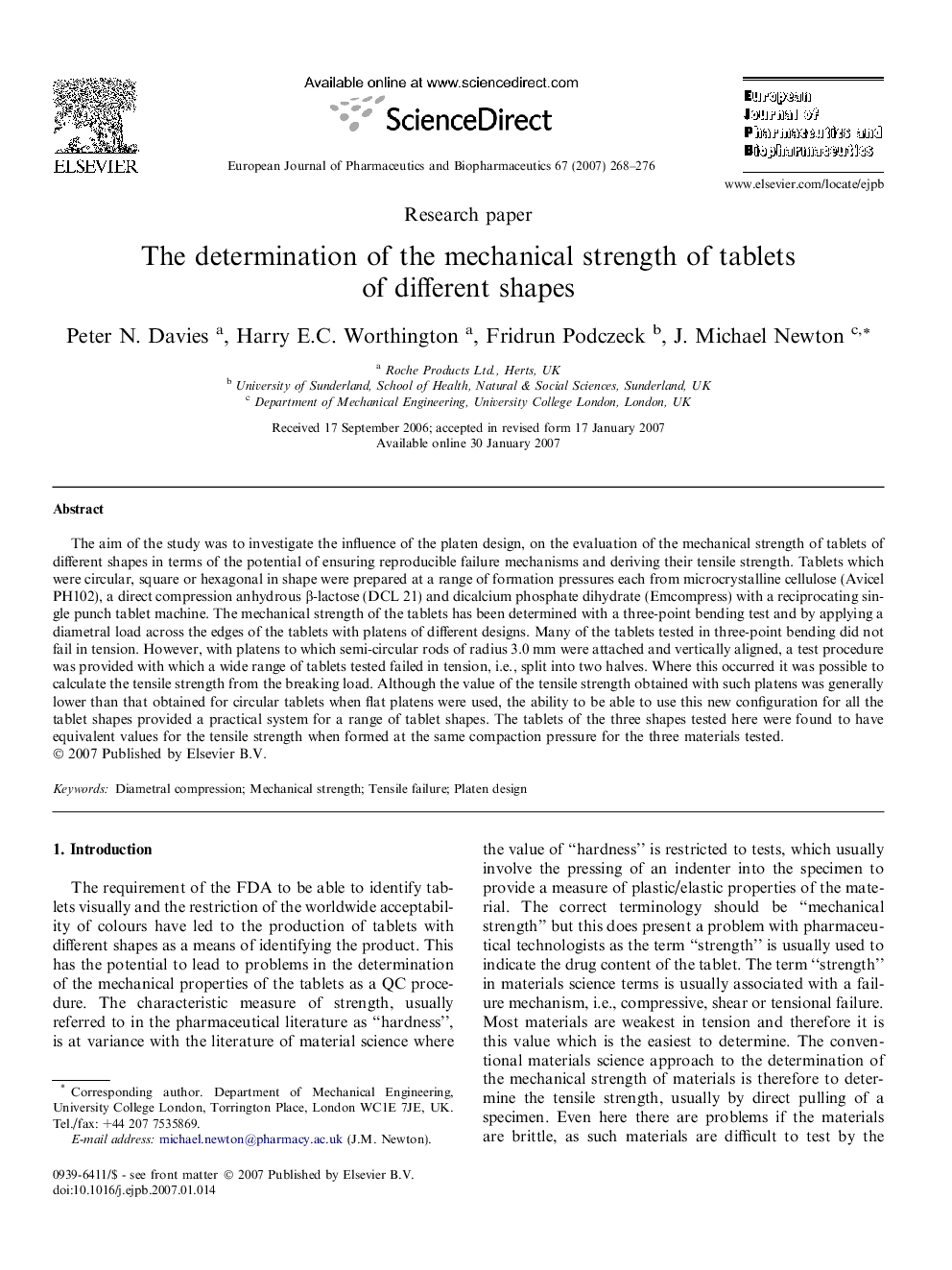| Article ID | Journal | Published Year | Pages | File Type |
|---|---|---|---|---|
| 2085058 | European Journal of Pharmaceutics and Biopharmaceutics | 2007 | 9 Pages |
The aim of the study was to investigate the influence of the platen design, on the evaluation of the mechanical strength of tablets of different shapes in terms of the potential of ensuring reproducible failure mechanisms and deriving their tensile strength. Tablets which were circular, square or hexagonal in shape were prepared at a range of formation pressures each from microcrystalline cellulose (Avicel PH102), a direct compression anhydrous β-lactose (DCL 21) and dicalcium phosphate dihydrate (Emcompress) with a reciprocating single punch tablet machine. The mechanical strength of the tablets has been determined with a three-point bending test and by applying a diametral load across the edges of the tablets with platens of different designs. Many of the tablets tested in three-point bending did not fail in tension. However, with platens to which semi-circular rods of radius 3.0 mm were attached and vertically aligned, a test procedure was provided with which a wide range of tablets tested failed in tension, i.e., split into two halves. Where this occurred it was possible to calculate the tensile strength from the breaking load. Although the value of the tensile strength obtained with such platens was generally lower than that obtained for circular tablets when flat platens were used, the ability to be able to use this new configuration for all the tablet shapes provided a practical system for a range of tablet shapes. The tablets of the three shapes tested here were found to have equivalent values for the tensile strength when formed at the same compaction pressure for the three materials tested.
